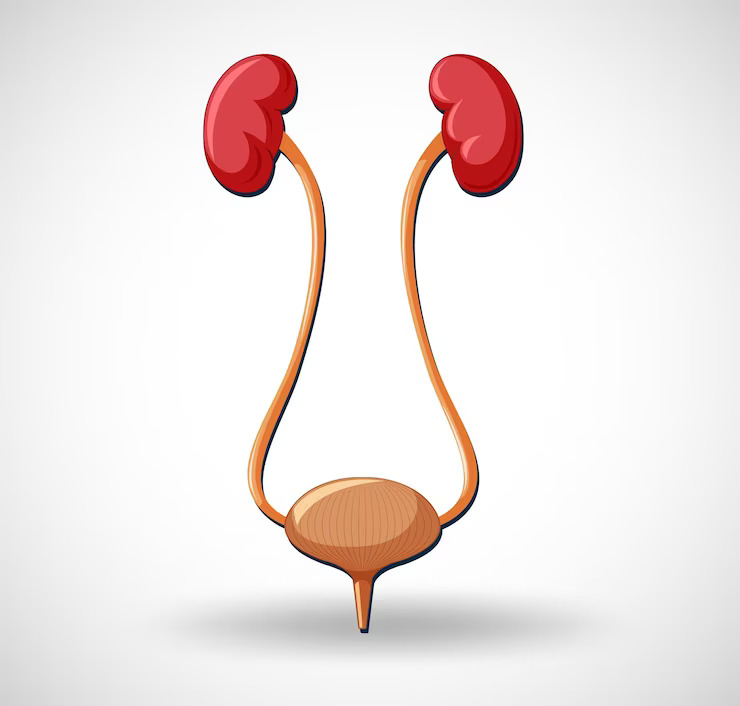Gall bladder stone treatment is a common medical procedure that is done all over the world to relieve the pain and other problems caused by gallstones. As the population ages, it’s getting harder for doctors to help older people with gall bladder stones. There are some things to think about and problems to solve that are unique to this group. For example, older patients may have more than one health problem, and their bodies may be changing in ways that make treatment harder. This article will talk about the special things to think about and problems that come up when treating gall bladder stones in older people. It will also show how important a personalized, multidisciplinary approach to care is.
Understanding Gall Bladder Stones
Gallstones are hardened deposits of bile, cholesterol, or bilirubin that form in the gallbladder. The gallbladder is a small organ that stores the bile that the liver makes. These stones can be as small as a grain of sand or as big as a golf ball. They can cause stomach pain, sickness, and vomiting. In some cases, gallstones can cause problems like inflammation of the gallbladder (cholecystitis) or blockage of the bile ducts, which need to be treated quickly to avoid serious health risks.
Choices for treatments
Cholecystectomy, which is surgery to remove the gallbladder, is the most common way to treat gall bladder stones. This procedure can be done through laparoscopic cholecystectomy, which is a less invasive method, or through an open surgery. Even though cholecystectomy is usually safe, it can be more dangerous for older patients due to things like being weaker, having less physiological reserve, and having other health problems.
Extra Care Needed for Older Patients
- Preoperative Assessment: Older people who need treatment for gall bladder stones must have a thorough preoperative assessment. This evaluation should include a thorough medical history, a physical exam, and the right lab and imaging studies to look at the patient’s overall health and find any pre-existing conditions that could affect how well the surgery goes.
- Risk stratification: Older patients are more likely to have comorbid conditions, such as heart or lung diseases, that can make surgery more dangerous. The risks of surgery in this population must be carefully weighed against the possible benefits of gall bladder stone treatment.
- Anesthesia: Older patients may be more sensitive to the effects of anesthesia and have a higher risk of problems after surgery, such as delirium or a decline in their ability to think. Anesthesiologists should make their plans based on what the elderly patient needs, choosing the right type and amount of anesthesia to lower the risk of bad things happening.
- Minimally Invasive Techniques: When possible, laparoscopic cholecystectomy and other minimally invasive surgeries should be used on older people. Compared to open surgery, these procedures usually cause less blood loss, less pain afterward, and shorter hospital stays, which can be especially helpful for older patients.
- Postoperative Care: Older patients may need more help during the time after surgery to make sure they recover well. This could include specialized ways to deal with pain, early movement, and the use of a multidisciplinary team with physiotherapists, nutritionists, and geriatric specialists to meet the special needs of this group.
Problems with treating older people
- Gall bladder stones can be hard to diagnose in older people because they may have unusual symptoms or be less likely to say they hurt. This can lead to more problems and the need for treatment that is more complicated.
- Multiple Comorbidities: Having more than one comorbidity can make it harder to treat gall bladder stones in older people. This is because these conditions can increase the risk of complications during surgery and need to be managed carefully in the weeks before surgery.
- Frailty and Physiological Decline: As people get older, their organ function, muscle mass, and overall physiological reserve can all start to decline. This makes older people more likely to have problems during surgery and can make it take longer for them to recover. When planning and carrying out treatment for gall bladder stones in older people, health care providers must think about these things.
- Medication Interactions: Older people often take more than one drug for different health problems. This can increase the chance of drug interactions and make it harder to treat gall bladder stones. To reduce risks, it may be necessary to carefully compare medications and talk to a pharmacist or geriatric specialist.
In short, when treating gall bladder stones in older people, you need a comprehensive, multidisciplinary plan that takes into account the special needs and challenges of this group. To get the best results for older patients, health care providers must carefully weigh the risks and benefits of surgery, use minimally invasive techniques when possible, and give specialized care after surgery.
Max Healthcare, a top healthcare provider, knows how important it is for older people who are getting treatment for gall bladder stones to get personalized, patient-centered care. Their skilled team of surgeons, anesthesiologists, geriatric specialists, and support staff work together to give older patients with gall bladder stones the best care possible. The hospital is committed to giving all patients, no matter how old they are, safe, effective, and kind care by using a multidisciplinary approach and focusing on the unique needs and challenges of the elderly.
Treating gall bladder stones in older people is complicated and requires a specialized, multidisciplinary approach because of the unique issues and problems that arise. By understanding the unique needs of this group and tailoring care to those needs, health care providers can help make sure that older people with gall bladder stones get the best and most effective care, which will improve their quality of life and overall health.
Read more:
https://topblogss.com/top-neurology-hospitals-in-india-with-best-care-and-facilities/
